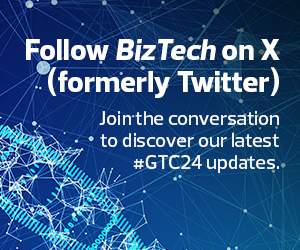Step 2: Establish Data Governance Frameworks
Establishing a robust data governance framework is essential for ensuring compliance, security and accountability in data management. This framework should outline policies, procedures and responsibilities related to data collection, storage, usage and access. Effective data governance mitigates risks associated with data misuse and ensures ethical and legal compliance. Regular audits and assessments can help identify areas for improvement and ensure adherence to data governance policies.
RELATED: Explore the topics and technologies discussed at the 2024 GTC NVIDIA conference.
Step 3: Invest in Modern Data Platforms
Organizations must invest in modern data platforms, such as data lakes or data warehouses, that are capable of handling large volumes of data efficiently. These platforms should support various data types, including structured, semi-structured and unstructured data, and enable seamless integration with other systems and tools. Organizations often have data dispersed across various systems and departments. Before deploying AI/ML tools, it’s crucial to integrate and centralize data from disparate sources into a unified repository.
Jill Klein, head of Internet of Things and emerging technology at CDW shares 5 steps to preparing your data at NVIDIA GTC 2024.
Step 4: Build Scalable Infrastructure and Architecture
AI/ML applications require scalable infrastructure capable of handling large volumes of data and complex computational tasks. Organizations must evaluate their existing IT infrastructure and ensure scalability to accommodate future growth in data volume and computational demands. For example, cloud-based solutions offer scalability, flexibility and cost-effectiveness for deploying AI/ML workloads.
READ MORE: Why is a modern data ecosystem essential to regulatory compliance?
Step 5: Data Privacy and Security Measures
Safeguarding sensitive data from unauthorized users is of the utmost importance. Before integrating AI/ML and IoT tools, organizations should establish stringent data privacy and security protocols. This entails employing encryption, access controls and anonymization techniques and adhering to regulations like the General Data Protection Regulation, the California Consumer Privacy Act and HIPAA. By prioritizing data privacy and security, organizations not only foster trust among customers and stakeholders but also mitigate potential liabilities.
BIZTECH: What do organizations gain by following these steps?
Klein: Ultimately, these data management and governance practices lay the groundwork for successful implementation of AI/ML and IoT tools. By investing in these foundational elements, organizations can unlock the full potential of their data assets and drive meaningful insights to support strategic decision-making.
Keep this page bookmarked for articles from the event and follow us on X (formerly Twitter) at @BizTechMagazine and the official conference feed, @NVIDIAGTC. The official conference hashtag is #GTC24.














